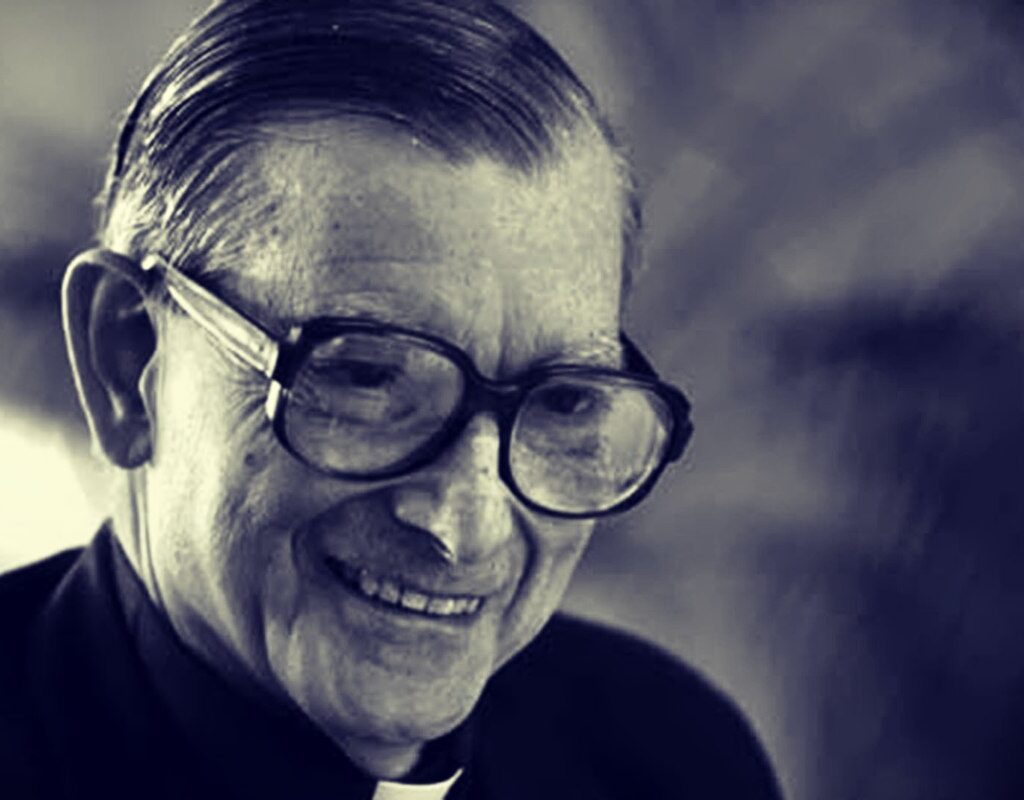The intersection of religion and science is vividly embodied in the figure of Father Manuel Carreira. Trained in fields as varied as Theology and Physics, his life and work stand as evidence of the harmonious dialogue between church doctrine and the scientific world.
Father Manuel Carreira: A Journey Through Aerospace Science and Ecclesiastical Faith
Father Manuel Carreira received his training in Philosophy at the University of Comillas and in Theology at Loyola University in Chicago. He also holds a master’s degree in Physics from John Carroll University in Cleveland and a Ph.D. in the same field from Catholic University in Washington. His focus was on Cosmic Rays and was supervised by Nobel Prize winner in Physics, Clyde Cowan, the discoverer of the neutrino. Father Carreira has held roles as a professor and has significantly contributed to the field of astrophysics and aerospace technology.
Manuel Carreira was born in Valdomiño (A Coruña) in 1931, where his mother worked as a teacher. However, he spent his childhood in Vilalba. He moved to the United States in 1957 and remained there until his retirement in 2007 when he returned to Spain.
Since then, he has traveled throughout Spain giving lectures, including one at the parish of La Soledad, commemorating the 150th anniversary of Darwin’s ‘The Origin of Species’.
How has the church’s stance on Evolution evolved?
The Church does not position itself as a judge of evolutionary and biological processes. Its mission is to emphasize the undeniable existence of a Creator, essential for the conception of the Universe.
The presence of a higher entity that grants matter its essential properties to operate according to its rules is undeniably recognized by church doctrine, an idea reaffirmed by Saint Thomas.
The church does not pronounce a specific dogma concerning the creation of living entities or stars. There’s no conflict with theology as long as it does not intervene in matters of the origin of life, a domain belonging to Biology and supported by fossil discoveries.
What do you think of religious groups advocating for a return to creationism?
These groups are not part of the Catholic tradition. They are fundamentalists, primarily based in the United States, who claim that the Scriptures are a source of scientific knowledge.
This claim is incorrect, just as its opposite is: Science does not have the ability to confirm or deny the existence of God since there isn’t an experiment that can validate or refute it.
When do Faith and Science become incompatible?
Harmony endures as long as both maintain their autonomy. Faith addresses questions that Science isn’t equipped to answer, acknowledging its own limitations: aspects such as reflection and creativity come from a source beyond matter, attributed to divinity.
How does a scientist interpret miracles?
Miracles should be analyzed through the lens of historically verified facts. If a miracle is recorded, it remains unexplained logically because it originates from God’s divine power.
Such events don’t negate science. If I hold a pencil, there isn’t a method to predict whether I will drop it or not, and this doesn’t question scientific foundations.
From a faith perspective, how do you view the existence of life on other planets?
I see it as a possibility since we currently lack concrete evidence to confirm it. It leans more towards speculation, in the realm of science fiction literature.
I’m surprised so much effort goes into this discussion when we still have mysteries on our own planet. From a theological viewpoint, there are no barriers to the idea that beings might exist in other parts of the universe.
You, being an expert in astrophysics, have been involved in space missions.
I participated in projects related to NASA. Since I am not an American citizen, I wasn’t on their payroll but collaborated as an external expert.
I contributed to the development of a gamma radiation detector and a high-energy device for a satellite that emits light through optical fibers.
It might seem unusual for a cleric to work in these fields. It would be, had I not earned a master’s and a doctorate in Physics from prestigious American institutions, and if I weren’t in a position conducive to collaborating with NASA.
If the Holy Shroud belonged to Alexander the Great, there would be no doubts about its authenticity.
Does science confirm the validity of relics, and what does this mean for the Church?
Relics are viewed as significant archaeological items. Through scientific methods, one can determine their age or specific location, linking them to historical events or figures.
However, in cases like the Shroud of Turin, scientific conclusions raise more questions than they answer. If it were associated with a figure like Alexander the Great, there might be no skepticism.
There is more evidence supporting the Shroud of Turin than many other artifacts. Acknowledging it means accepting Christ as a genuine historical figure. Some people, due to biases or personal beliefs, dismiss any proof, a stance that challenges scientific thinking.
Regarding research, the Vatican’s positions appear to be cautious, especially on topics like stem cell research.
The Church does not oppose progress. Its mission is to uphold the inherent value of humans, who should never be treated merely as experimental subjects. Certain ethical boundaries should not be crossed; memories of the heinous acts by doctors during the Nazi regime still linger.
Is there any stance that remains unchanged?
Absolutely steadfast. Human dignity is non-negotiable and should not be compromised for the benefit of others. Society operates for the individual, as does science.
Human Glimpses in the Urban Maze
Cities, a chessboard of light and shadow, often unveil touching acts that shatter preconceived notions of the divide between the rich and poor… read more>>
We thank journalist Ana Baena in Vigo, Spain, for her invaluable contribution to this interview for the Atlantico.net website.





